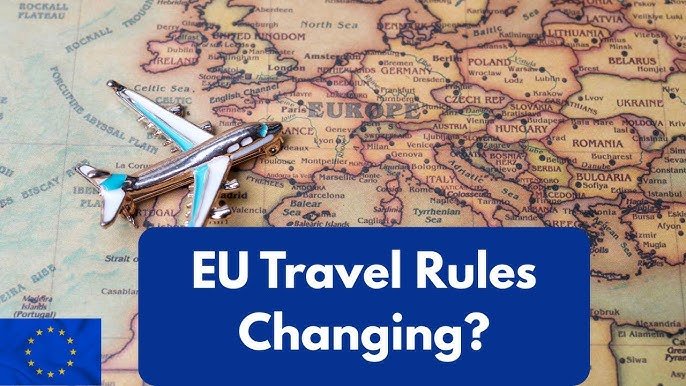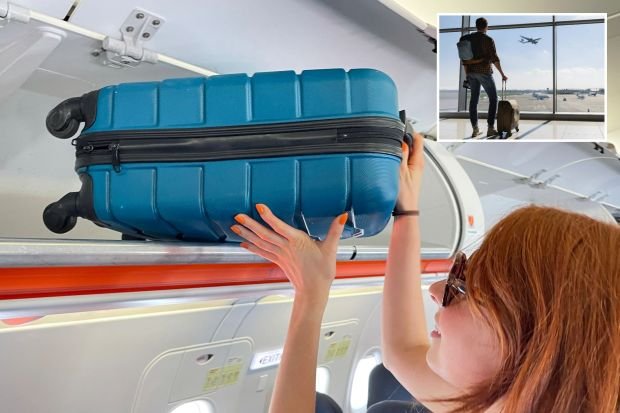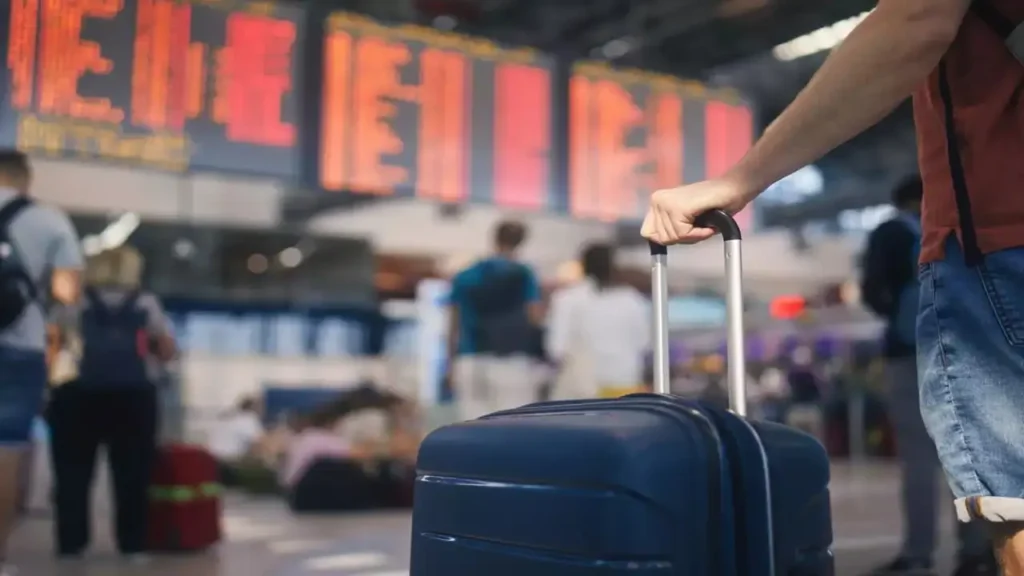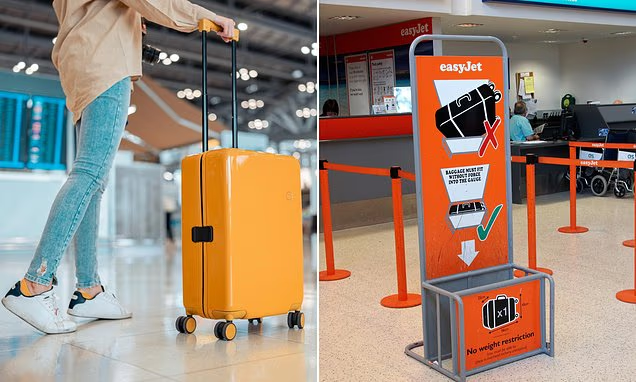A Landmark EU Policy to Eliminate Hand Luggage Fees in Air Travel
A significant reform is on the horizon for passengers flying within, to, and from the European Union. With the upcoming legislation proposed by EU lawmakers, the big change affecting European travel aims to eliminate hand luggage fees, bringing long-awaited relief to millions of airline passengers. The new rule specifically targets the practice of charging extra for cabin bags—especially among budget airlines that often rely on such fees for added revenue.

This development marks a major shift toward transparency and fairness in the airline industry. EU authorities could implement the move to eliminate hand luggage fees as soon as July 2025. For years, flyers have dealt with confusing pricing structures, unexpected charges at boarding, and inconsistent baggage rules across airlines. The proposed law seeks to eliminate hand luggage fees and standardize the experience, making air travel simpler and fairer for everyone.
What the EU Proposal to Eliminate Hand Luggage Fees Includes
On 24 June 2025, the European Parliament voted in favor of a resolution that would standardize hand luggage policies across all EU member states and flights operating within or linked to the EU. Here’s what the new regulation proposes:
- Free carry-on luggage allowance: Passengers will be allowed to carry one small cabin bag weighing up to 7 kilograms (15.4 pounds).
- Bag dimension limits: The cabin bag must not exceed a total size of 100 cm (sum of height, width, and depth).
- Additional personal item: Travelers can also carry a personal item that fits under the seat, such as a handbag or laptop bag, sized up to 40x30x15 cm, at no extra cost.
If passed by at least 55% of EU member states, the regulation will become law and will apply to all airlines operating flights within the EU, as well as those entering or exiting the EU airspace.
Why Eliminating Hand Luggage Fees Is a Big Change Affecting European Travel
This legislation addresses one of the most controversial practices in the airline industry—charging passengers for hand luggage. Historically, low-cost carriers such as Ryanair, Wizz Air, and EasyJet have monetized cabin luggage as an additional revenue stream, often surprising travelers with steep fees for basic carry-ons.

The big change affecting European travel is more than just about bags; it reflects a wider movement to protect consumer rights and ensure clarity and fairness in air travel policies. For travelers, it means:
- Fewer unexpected fees
- More consistent policies between airlines
- Greater transparency during the booking process
The Push to Eliminate Hand Luggage Fees: Years of Passenger Complaints and Legal Battles
The push to eliminate hand luggage fees didn’t happen overnight. Over the past decade, passengers, consumer advocacy groups, and several EU governments have repeatedly raised concerns about so-called “abusive practices” in airline pricing. Responding to these complaints, Spain’s Consumer Rights Ministry fined five budget airlines in November 2024, issuing a combined penalty of €179 million for charging passengers extra to bring carry-on bags onboard.

This legal action sparked renewed debate across Europe, leading to heightened pressure on lawmakers to act. Data supported the fine by revealing that airlines often failed to clearly disclose hand luggage fees during the booking process, which left passengers feeling misled.
Consumer groups like BEUC (The European Consumer Organisation) have long argued that air passengers should have basic entitlements, such as bringing a small suitcase onboard, without having to pay extra for it.
Carry-On Rules Across Europe: A Patchwork of Confusion
Currently, airline policies vary widely even among carriers operating the same routes. For instance:
- Ryanair often restricts cabin luggage to a small under-seat bag unless passengers pay for priority boarding.
- EasyJet allows a large cabin bag only for those who book certain ticket types.
- Lufthansa and Air France may include a carry-on in standard fares but differ in size and weight limits.
This inconsistency has made it difficult for consumers to compare flights fairly, especially when trying to calculate the true cost of travel.
What the New Rules Mean for Families
Another critical provision of the new EU proposal involves seating arrangements for families. Lawmakers voted in favor of a policy requiring airlines to seat children aged 12 and under next to their parents or guardians without charging extra for seat selection.
This decision follows numerous complaints from parents who had to pay premiums to sit next to their children or, worse, found themselves separated from them during flights. The new law aims to eliminate this scenario, ensuring both family safety and financial fairness.
Enhanced Transparency for Flight Pricing and Compensation
The proposed legislation also tackles the complexity of airline pricing and reimbursement procedures. If passed, the law will mandate:
- Full disclosure of ticket costs: Including service charges and intermediation fees at the point of booking.
- Clear refund instructions: Vendors must explain how reimbursement works, including timelines and eligible scenarios.
- Extended compensation coverage: If a passenger misses a connecting mode of transport (like an airport shuttle bus) due to flight delays—and both were purchased via a single platform—they will now be eligible for compensation.
This expansion of rights makes the big change affecting European travel not only about bags and seats but about creating a more accountable and passenger-friendly travel system.
Pushback from Airlines: The Opposition Grows
Despite widespread public support, not everyone is in favor of the legislation. Airlines, particularly low-cost carriers, have expressed strong opposition to the carry-on fee ban. Industry representatives argue that the move undermines the “pay-as-you-choose” model, which has become central to budget travel.
Ourania Georgoutsakou, Managing Director of Airlines for Europe, the continent’s largest airline association, said:
“Europe’s airline market is built on choice. Forcing a mandatory trolley bag strips passengers of that choice and obliges them to pay for services they may not want or need.”
Airlines contend that if they’re forced to include carry-on luggage in the standard fare, they will simply raise ticket prices. This, they argue, could disadvantage passengers who travel light and prefer the current pricing flexibility.
Could Prices Rise Across the Board?
The central argument from airlines is that hidden fees will be replaced by higher upfront fares. While it’s true that making carry-on luggage a basic inclusion might raise ticket prices slightly, many consumer advocates say this would be a fairer and more transparent approach.
Instead of springing charges on passengers at check-in or boarding, airlines must now show the real cost of flying—a change that helps consumers make informed decisions.
Implementation Timeline: When Will the Rule Take Effect?
If a majority of EU member states (at least 15 countries representing 65% of the EU population) approve the law, EU officials could begin implementation as early as July 2025.
There will likely be a transition period for airlines to adjust their policies, update systems, and retrain staff. During this time, travelers should expect to see a gradual harmonization of luggage policies, especially on routes operated by multiple airlines.
What Travelers Should Do in the Meantime
Until the law is fully adopted and implemented, travelers should:
- Check baggage policies carefully before booking
- Compare total prices (fare + luggage + seat fees)
- Consider full-service carriers if the overall cost is comparable
- Use airline apps or customer support to confirm what’s included in their ticket
Once the new rules are in place, passengers will no longer have to go through the tedious process of decoding complicated luggage policies just to bring a cabin bag.
Broader Impact: Could This Inspire Global Reform?
While the big change affecting European travel is an EU-specific regulation, it may have ripple effects across the globe. As consumer expectations shift, non-EU carriers operating European routes may voluntarily adopt similar policies to stay competitive.
Additionally, regions such as North America and Southeast Asia—where budget airlines also dominate—might feel the pressure to re-evaluate their pricing structures and become more transparent with customers.
Toward Fairer, More Predictable Air Travel
The upcoming changes represent a watershed moment in European aviation history. For millions of passengers, the ability to carry hand luggage for free, sit with their families, and understand the full cost of flying without surprises will significantly improve the travel experience.

While resistance from airline industry stakeholders is expected, the overarching trend is clear: the big change affecting European travel puts passengers first, ensuring fairness, transparency, and convenience in every booking.
As the EU prepares to enact these landmark reforms, travelers across the continent—and around the world—can look forward to a new era of equitable air travel.




